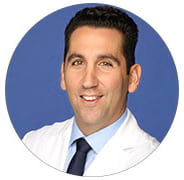Inflammation is a buzzword in health care. Most chronic diseases that afflict the Western world—heart disease, cancer, Alzheimer’s disease—are now known to be inflammatory in nature.1 It’s important to recognize that when we discuss inflammatory disease, there are two foundational errors that occur in the body. The first is the initiation of an inappropriate inflammatory response—the so called “trigger.” The second, which is perhaps more important, is the inability to turn off that inflammatory response.
Turning Off Inflammation
It makes sense to discuss lifestyle interventions to minimize proinflammatory events and reduce the risk of an inflammatory issue, but ensuring inflammation can be turned off when needed is essential as well. Exercise, anti-inflammatory diets, sleep hygiene and immune-supportive supplements are all effective measures, but are they reducing inflammation at the origin or putting out the fire at the end?
T Cells and Inflammation
Resolving inflammation depends a great deal on the smartest immune cells in the body: T cells. T cells are the “brain” of the immune system and the core of what makes it adaptive. A balanced and robust T-cell system means inflammation is resolved quickly and efficiently, preventing a proinflammatory disease state. T cells can be broken down into three subgroups: T regulatory cells, CD4 helper T cells, and CD8 killer and suppressor T cells. Testing levels of T cells in patients is straightforward and relatively easy to do.2 All major laboratories offer T-cell subset testing via flow cytometry, which provides an accurate quantitative analysis of these cells.
The Bottom Line
If a patient has a robust T regulatory cell count, then they have plenty of balancing T cells that send out signals ensuring immunological homeostasis, turning off inflammation as soon as the body has no further use for it. If not, they are susceptible to chronic proinflammatory immune states and the chronic diseases that follow. Supporting a patient with low T regulatory cell counts is thankfully straightforward: vitamin D3, probiotics, dietary fiber, curcumin, anti-inflammatory diets, and good sleep hygiene all support these essential T cells.3 Give the T regulatory cells support, and they reward the rest of the body by turning off inflammatory fires swiftly and effectively.

Elroy Vojdani, MD is the founder of Regenera Medical, a boutique Functional Medicine practice in Los Angeles, California. Upon graduating medical school from the University of Southern California and completing his residency at USC Keck School of Medicine, Dr. Vojdani began his career as an interventional radiologist, diagnosing and treating complex, late-stage cancers and other extremely debilitating diseases. While this experience gave him unique insight into hospital-based medicine, his desire to stop disease before it reached the point of becoming a chronic illness remained at the core of his desire to practice medicine. Today, he continues in his father’s footsteps–pioneering to find answers to medical conditions that go undiagnosed and untreated.
Dr. Vojdani has co-authored more than 20 articles in the scientific literature and continues an integral role in research related to autoimmune, neurodegenerative and autoinflammatory conditions. He is also the co-author of a medical textbook, Food Associated Autoimmunity.
References
- Furman D, Campisi J, Verdin E, et al. Chronic inflammation in the etiology of disease across the life span. Nat Med. 2019;25(12):1822-1832. doi:10.1038/s41591-019-0675-0
- Duke-NUS Medical School. (2021, September 2). A simple T-cell test to show the full picture of body's immune response to COVID-19: A rapid way to track an elusive part of the immune system will bring better vaccine strategies. ScienceDaily. Retrieved March 7, 2022 from www.sciencedaily.com/releases/2021/09/210902124937.htm
- Foods that fight inflammation. Harvard Health. (2021, November 16). Retrieved March 7, 2022, from https://www.health.harvard.edu/staying-healthy/foods-that-fight-inflammation

.jpg?sfvrsn=b79e0cea_7)

